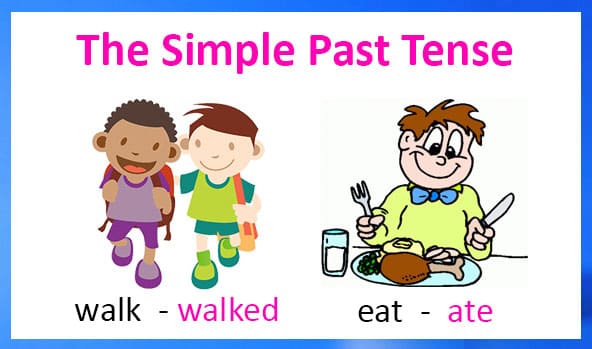Introduction
The fundamental building blocks of English grammar are tenses, which help us express time clearly when discussing past occurrences, current activities, or future plans. At first, understanding tenses may appear difficult, but it becomes easier when they are broken down into basic ideas. We’ll go over the past, present, and future tenses in this blog along with concise explanations, real-world examples, and helpful advice for becoming proficient in each.
What Are Tenses?
In a sentence, tenses show the time of an action or event. They assist us in determining whether an event occurred previously, is currently occurring, or will occur in the future.
1. The Past Tense

Actions or events that have already taken place are referred to in the past tense..
Types of Past Tense:
a. Simple Past
used for previously finished tasks.
Example:
- Yesterday, I went to the museum.
b. Past Continuous
explains activities that were in progress in the past.
Example:
- When the phone rang, I was in the middle of reading a book.
c. Past Perfect
used to demonstrate that in the past, one activity was finished before another.
Example:
- Before dinner, she had completed her schoolwork.
d. Past Perfect Continuous
describes a previous action that was still in progress.
Example:
- Before taking a break, he had been working for hours.
2. The Present Tense
The present tense refers to actions happening now or general truths.
Types of Present Tense:
a. Simple Present
Used for facts, habits, and regular actions.
Example:
- The sun rises in the east.
b. Present Continuous
Describes ongoing actions happening right now.
Example:
- I am writing a blog.
c. Present Perfect
Used for actions that started in the past but continue into the present or have relevance now.
Example:
- I have lived here for five years.
d. Present Perfect Continuous
Describes an action that started in the past and is still happening.
Example:
- She has been studying all morning
3. The Future Tense
The future tense refers to actions or events that will happen.
Types of Future Tense:
a. Simple Future
Describes actions that will occur in the future.
Example:
- I will visit Paris next summer.
b. Future Continuous
Indicates ongoing actions that will occur in the future.
Example:
- She will be working on the project tomorrow afternoon.
c. Future Perfect
Describes actions that will be completed before a certain point in the future.
Example:
- They will have finished the project by next week.
d. Future Perfect Continuous
Used for actions that will be ongoing until a certain point in the future.
Example:
- By next year, he will have been teaching for a decade.
Common Pitfalls and How to Avoid Them
1. Confusing Tenses
The reader may become confused if tenses are changed needlessly. Unless the situation calls for a different tense, stick to one.
Incorrect:
- He was getting good grades because he studied diligently.
Correct:
- He works hard in his academics and gets good grades.
2. Overusing the Continuous Form
continuous tenses have their uses, writing can become uncomfortable when they are used excessively.
Incorrect:
- I already know the answer.
Correct:
- I am aware of the solution.
3. Forgetting Time Markers
To make the tense clear, use time markers such as yesterday, today, or tomorrow.
Example:
- Yesterday, he completed his assignment.
Practical Tips for Mastering Tenses
1. Practice Writing
Write more Compose brief paragraphs in various tenses to improve your comprehension.
2. Use Visual Aids
To see when things happen, make a timeline chart.
3. Watch and Read in English
Observe the usage of tenses in discussions, literature, and films.
4. Practice with Exercises
Take knowledge-testing tense-based quizzes.
Using Tenses in Daily Life
1. Conversational Practice
Engage in language exchange organizations or practice speaking with friends.
Example Conversation:
- How did you spend yesterday?
- I made dinner and watched a movie.
2. Storytelling
Compose or narrate short stories that center on current or upcoming events.
Fun Activities for Learning Tenses
1. Tense Bingo
Make bingo cards that include instances of various tenses. Ask participants to mark the appropriate tense as sentences are called out.
2. Tense Conversion Game
Students are asked to change a sentence from one tense to another.
Conclusion
Gaining an understanding of tenses is crucial for enhancing verbal and written communication. Learning can be made easier and more pleasurable by decomposing the past, present, and future tenses into digestible ideas. Tenses will become second nature if you practice regularly!
Also Read:
https://bright-minds.in/unlocking-word-meaning-for-class-ukg-english-to-hindi/

